Christof Lehmann (nsnbc) : Qais al-Khazali, the leader of Iraq’s Shi’ite, Iranian-backed Asa’ib Ahl al-Haq of the Hashd al-Shaabi forces, threatened on Friday that should Kirkuk be attached to Iraq’s Kurdistan Region through the independence referendum, scheduled for September 25, Shi’ite forces will take military action against Kirkuk.
During his Friday prayers and speech in Najaf, Qais al-Khazali urged Baghdad to voice a “clear and frank” stance against the recent decision made by the Kirkuk Provincial Council, to have the city and Kirkuk region participate in the Kurdistan Autonomous Region’s independence referendum on September 25.
Al-Khazali has often made threatening statements against the Kurdistan Autonomous Region. He described the efforts to merge Kirkuk and the disputed areas between Baghdad and Erbil with an independent Kurdistan as a “very dangerous plan.”
Should Kirkuk and the disputed areas be annexed to the Kurdistan Region, the areas will be regarded as “occupied territories and Hashd al-Shaabi will not accept for the Iraqi soil to get occupied, especially now that Iraq is strong in military terms,” Khazali warned.
The local councils in the disputed area, which are claimed by Kurdistan but are currently run by Baghdad, have voted to hold the independence referendum of Kurdistan in their areas. In a session boycotted by Turkmen and Arab members, Kirkuk’s provincial council on August 29, a total of 22 members of Kirkuk Provincial Council voted in favor of Kirkuk’s involvement in the referendum.
Kirkuk’s – Turkey-backed – Turkmen Front faction and the Arab faction said the move was unconstitutional. Iraqi Prime Minister Haider al-Abadi also denounced the Kirkuk Council’s decision as “wrong.” He added the referendum is “unconstitutional and has no value.” Iraqi vice president and influential Shiite leader Nuri al-Maliki expressed his opposition to Kirkuk Provincial Council’s decision to participate in the Kurdistan independence referendum.
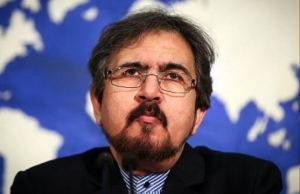 On Wednesday the Iranian Foreign Ministry denounced the Kirkuk Council’s decision as a “provocative and dangerous move”. The Kurdistan Region’s political parties, not including Gorran Movement and the Kurdistan Islamic Group (KIG), came to an agreement on June 7 to hold a referendum on the region’s independence on September 25, 2017. The decision was slammed by Iraq, US, UK, EU, Russia, Germany, Turkey and Iran.
On Wednesday the Iranian Foreign Ministry denounced the Kirkuk Council’s decision as a “provocative and dangerous move”. The Kurdistan Region’s political parties, not including Gorran Movement and the Kurdistan Islamic Group (KIG), came to an agreement on June 7 to hold a referendum on the region’s independence on September 25, 2017. The decision was slammed by Iraq, US, UK, EU, Russia, Germany, Turkey and Iran.
The oil rich Kirkuk city in Iraq’s north is claimed by both Iraq’s central government and the country’s Kurdish region. The Kurds are seeking to integrate Kirkuk province into the semi-autonomous Kurdistan Region claiming it to be historically a Kurdish city, but Iraq’s central government opposes this. The population is a mix of Kurds, Arabs, Christians and Turkmen.
More important than ethnic and religious affiliations, however, are economic and geopolitical concerns, and these concerns make the Kirkuk questions extremely complex, difficult to solve, and potentially explosive.
In early August Rebwar Talabani, acting head of Kirkuk Provincial Council, told reporters that the Council rejects the possible construction of a pipeline from Kirkuk, Iraq, to Iran, based on recent talks between the Energy / Petroleum ministers of the two countries, as unconstitutional. Talabani’s statement came only days after the oil ministers of Iraq and Iran met to discuss the construction of a pipeline from Kirkuk to Iran.
The pipeline would potentially offer an alternative route to the pipeline from Kirkuk to Ceyhan, Turkey. Talabani said to reporters “Certainly, no. Baghdad continuously brokers these agreements without informing the province which produces the oil. And this is contrary to Article 112 of the constitution which states that any oil policy, administration, management or any oil activities within the territory of any province that produces oil should be done in coordination [with the province].”
Article 112 of the Iraqi constitution specifically mentions distribution of revenues in a fair manner, among the “governorates and regional governments.” Iranian Oil Minister Bijan Zanganeh said on Sunday after meeting his Iraqi counterpart Jabar al-Luaibi that the two neighbors were moving closer to building a pipeline that would send oil from Kirkuk to Iran.
The Kurdistan Autonomous Region began exporting oil independently in 2015, saying it was forced to do so because Baghdad had stopped giving Erbil its 17 percent share of Iraq’s oil revenue. “This government has continued its lack of trust, beginning from the [Nouri] al-Maliki’s government up to now. They give some promises, make some political agreements and hold some meetings, but they (only) waste time. And this amounts to deception. That is why they bypass and stage a coup against the constitution,” Talabani explained.
However, rivalries between Baghdad and Erbil / Kirkuk are not the only controversial issues. Following the invasion of Iraq by ISIS in 2013, the Kirkuk – Ceyhan pipeline was also used to launder the Islamic States oil, stolen in Syria, and make it available to international export markets. It is also worth noting that the European Union, in April 2013, lifted its embargo on the import of Syrian oil provided that it comes from “rebel-held territories” in Syria.
Those double-dealings set aside, Baghdad and Tehran had signed a memorandum of understanding on the exportation of Kirkuk oil to Iran in February. “But we have never allowed them to succeed (in these maneuvers). Remember, they wanted the amount of oil which OPEC decided to decrease, 50,000 to 60,000 were the share of Kirkuk which they wanted to send it to Mosul to reconstruct the city at the expense of Kirkuk. But we rejected that as the council and administration. The federal government then was obliged to send a delegation for discussions and negotiations and we imposed out conditions on them,” Talabani said in August 2017.
Under an agreement between Erbil and Baghdad made in 2016, half of the revenues of sales of Kirkuk’s oil go to the Kurdistan Region. Two of its oil fields are under the control of the Kurdistan Regional Government (KRG) and three are run by Iraq’s North Oil Company (NOC). Even before the latest agreement was reached, Baghdad had been sending Kirkuk oil to other Iraqi provinces. The Kirkuk province, therefore, wants to file a lawsuit against the Iraqi oil ministry at the Federal Court. Almas Fazil, head of the legal committee in the Kirkuk told reporters “It is true that oil is a national asset, but it has to be [dealt with] in coordination with the province. Unfortunately we have always complained and been critical of the agreements. Our only calls were the installation of a refinery to Kirkuk and an airport which were never created”.
The threat of war against Kirkuk and Kurds by Qais al-Khazali, and by extension the Iranian proxy Asa’ib Ahl al-Haq of the Hashd al-Shaabi, didn’t come as a surprise for those who have observed the region and its regional and geopolitical rivalries. That said, the fact that the potential of a war between Shi´ite forces and Kurds has been known for some time doesn’t make the conflict less dangerous.
A war between the Hash al-Shaabi or some of its factions and Kurds will would arguably force the hands of the Iraqi Kurdistan Autonomous Region to support militant Iranian – Kurdish factions who are engaged in an insurgency in northwestern Iran already. How close to the boiling point tensions between Kurds and Iran already are was seen earlier this year when Iranian military lobbed artillery shells across the border into Iraq’s Kurdistan Autonomous Region to target Iraqi Kurdish militants there.
CH/L – nsnbc 02.09.2017
Source Article from https://nsnbc.me/2017/09/02/iranian-backed-iraqi-shiite-militia-leader-threatens-war-if-kirkuk-joins-kurdistan-in-referendum/
 RSS Feed
RSS Feed















 September 2nd, 2017
September 2nd, 2017  Awake Goy
Awake Goy 










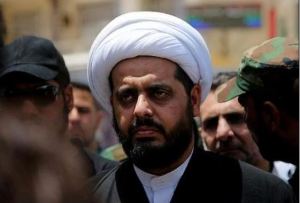
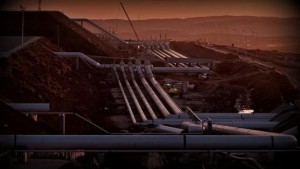
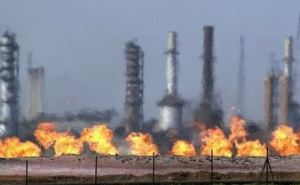
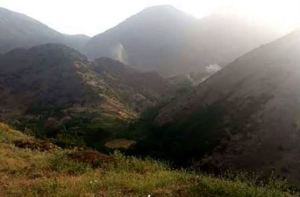
 Posted in
Posted in  Tags:
Tags: 













